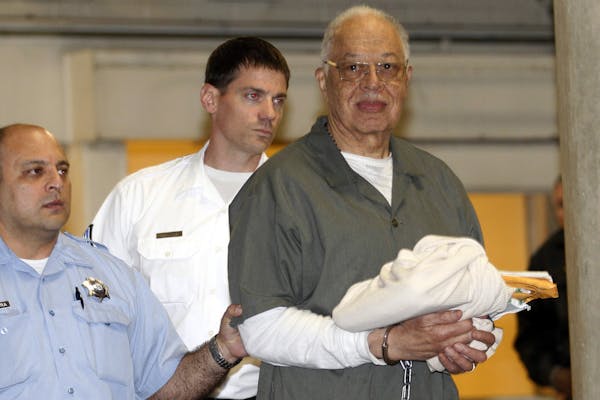On Monday, a jury in Philadelphia found abortion provider Dr. Kermit Gosnell guilty of first-degree murder, manslaughter, performing illegal late-term abortions and violating the Pennsylvania informed-consent law. In doing so, the jury delivered justice for three infants who were born alive then murdered at the abortion clinic, as well as for Karnamaya Mongar, who died after a botched abortion.
Unfortunately, these heinous crimes might not have been discovered or prosecuted if they had happened here in Minnesota. Most Minnesotans are surprised to learn that abortion is legal in this state throughout pregnancy and that Minnesota has no regulations for abortion clinics.
So what would happen if Gosnell's clinic had been in Minnesota?
The Philadelphia jury was convinced that three infants survived Gosnell's attempts to abort them. One of the babies was so large, Gosnell joked that "this baby is big enough to walk around with me." The second was breathing for more than 20 minutes, and the third was delivered in a toilet and tried to use swimming motions to get out. All three died after Gosnell or a member of his staff "snipped" the newborns' spinal cords.
Gruesome as the practice of snipping is, it is hard to distinguish from the dismemberment involved in the most common method of abortion practiced in Minnesota during late second- and third-trimester abortions.
In addition to the murder counts, Gosnell was convicted of performing abortions on women who were more than 24 weeks pregnant. That conviction would not be possible in Minnesota, because it is not a crime here.
In 1974, the Minnesota Legislature attempted to prohibit abortions after the baby was viable (capable of living outside the womb) except when the pregnancy threatened the mother's life or health. However, the law was immediately challenged by a Minnesota abortion doctor and was struck down by a federal court in 1976.
In 2011, the Legislature voted to prohibit late-term abortions, but Gov. Mark Dayton vetoed the law. This means that it is legal for a woman to obtain an abortion in Minnesota at any time up until birth.
Another worrisome aspect of this case is the horrendous condition of Gosnell's clinic. The appalling conditions were part of the evidence that led to his conviction of manslaughter in Mongar's death. The New York Times reports:
"According to a January 2011 grand jury report, Dr. Gosnell's patients were covered with bloodstained blankets, treated with unsterilized instruments and surrounded by cats that were allowed to defecate in the building."
That grand jury report gives more details noting that "there were cat feces and hair throughout the facility" and that those cats "were infested with fleas." The cats also "slept on beds in the facility when patients were not using them."
These unsanitary and dangerous conditions could have been discovered had the clinics been visited by state inspectors as required by Pennsylvania law. Unfortunately, Tom Ridge, Pennsylvania's governor from 1995 to 2001, ordered the law not be enforced because he thought it unnecessarily burdened women's right to abortion.
It's horrifying to think that the clinic's conditions were allowed to lead to a woman's death in a state that had regulations. But what if it happened here?
Minnesota offers no regulations to protect the health and safety of women seeking abortions. In 1974, the Legislature passed a law (which is still on the books) requiring the health commissioner to license and promulgate rules for abortion clinics. The commissioner adopted clinic regulations in 1974, but a federal district court struck them down.
The Legislature attempted to remedy this dangerous omission by passing a clinic regulations bill in 2012, but Gov. Dayton vetoed the bill. He claimed the regulations were unnecessary because Minnesota clinics are adequately monitored by the National Abortion Federation, a national trade association of abortion clinics.
With no time limits on abortion and no regulation of the clinics, how would we even know if practices like those of Dr. Gosnell are happening in Minnesota? Women and children deserve better.
---------------------
Teresa S. Collett is a professor of law at the University of St. Thomas and director of the Prolife Center there. The views expressed in this commentary are not intended to represent those of the university.

